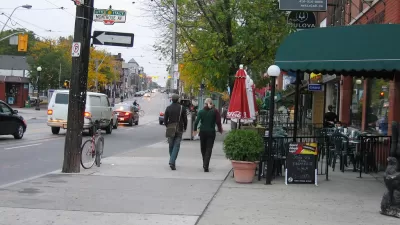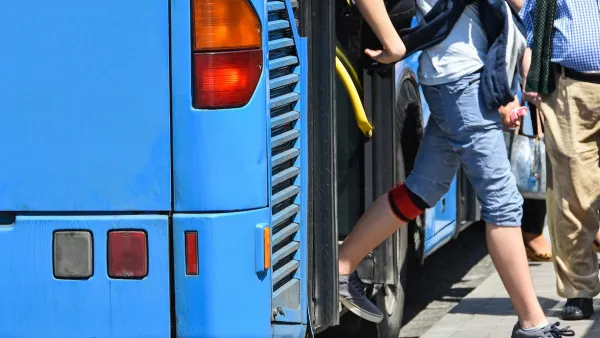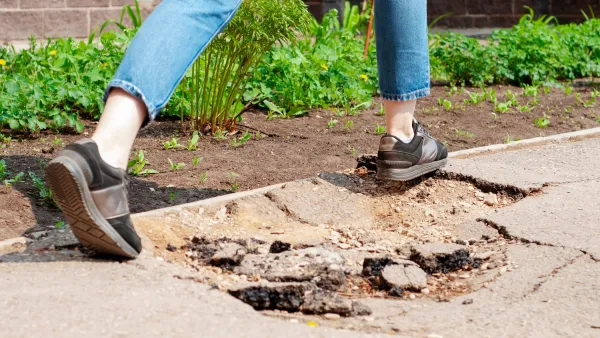When you think of sidewalks, you most likely think of concrete. Though it makes up the vast majority of sidewalks, concrete isn't the only game in town.
From bricks to cobblestones to recycled rubber, there are plenty of material options for sidewalks. But concrete is likely the cheapest.
"For most American cities, concrete is the go-to choice for building sidewalks. It's relatively cheap to install - only about $12 per square foot - and it's very solid. Its pale color reflects light, reducing nighttime illumination costs for cities compared to darker-hued alternatives. Plus, if adequately maintained, concrete can last up to eighty years.
Yet concrete also has its downsides: Manufacturing it has a high carbon footprint, since its fabrication requires the energy-intensive heating of limestone; it has a tendency to crack when tree routes grow underneath it; and it has no porosity, depriving the ground under it of essential ground water and increasing runoff problems."
FULL STORY: The Sidewalks of Today and Tomorrow: Is Concrete Our Only Option?

Maui's Vacation Rental Debate Turns Ugly
Verbal attacks, misinformation campaigns and fistfights plague a high-stakes debate to convert thousands of vacation rentals into long-term housing.

Planetizen Federal Action Tracker
A weekly monitor of how Trump’s orders and actions are impacting planners and planning in America.

In Urban Planning, AI Prompting Could be the New Design Thinking
Creativity has long been key to great urban design. What if we see AI as our new creative partner?

King County Supportive Housing Program Offers Hope for Unhoused Residents
The county is taking a ‘Housing First’ approach that prioritizes getting people into housing, then offering wraparound supportive services.

Researchers Use AI to Get Clearer Picture of US Housing
Analysts are using artificial intelligence to supercharge their research by allowing them to comb through data faster. Though these AI tools can be error prone, they save time and housing researchers are optimistic about the future.

Making Shared Micromobility More Inclusive
Cities and shared mobility system operators can do more to include people with disabilities in planning and operations, per a new report.
Urban Design for Planners 1: Software Tools
This six-course series explores essential urban design concepts using open source software and equips planners with the tools they need to participate fully in the urban design process.
Planning for Universal Design
Learn the tools for implementing Universal Design in planning regulations.
planning NEXT
Appalachian Highlands Housing Partners
Mpact (founded as Rail~Volution)
City of Camden Redevelopment Agency
City of Astoria
City of Portland
City of Laramie





























